How The Last of Us Left Me in Tears
HBO's adaptation breathes life and love into two queer characters. But is it enough?
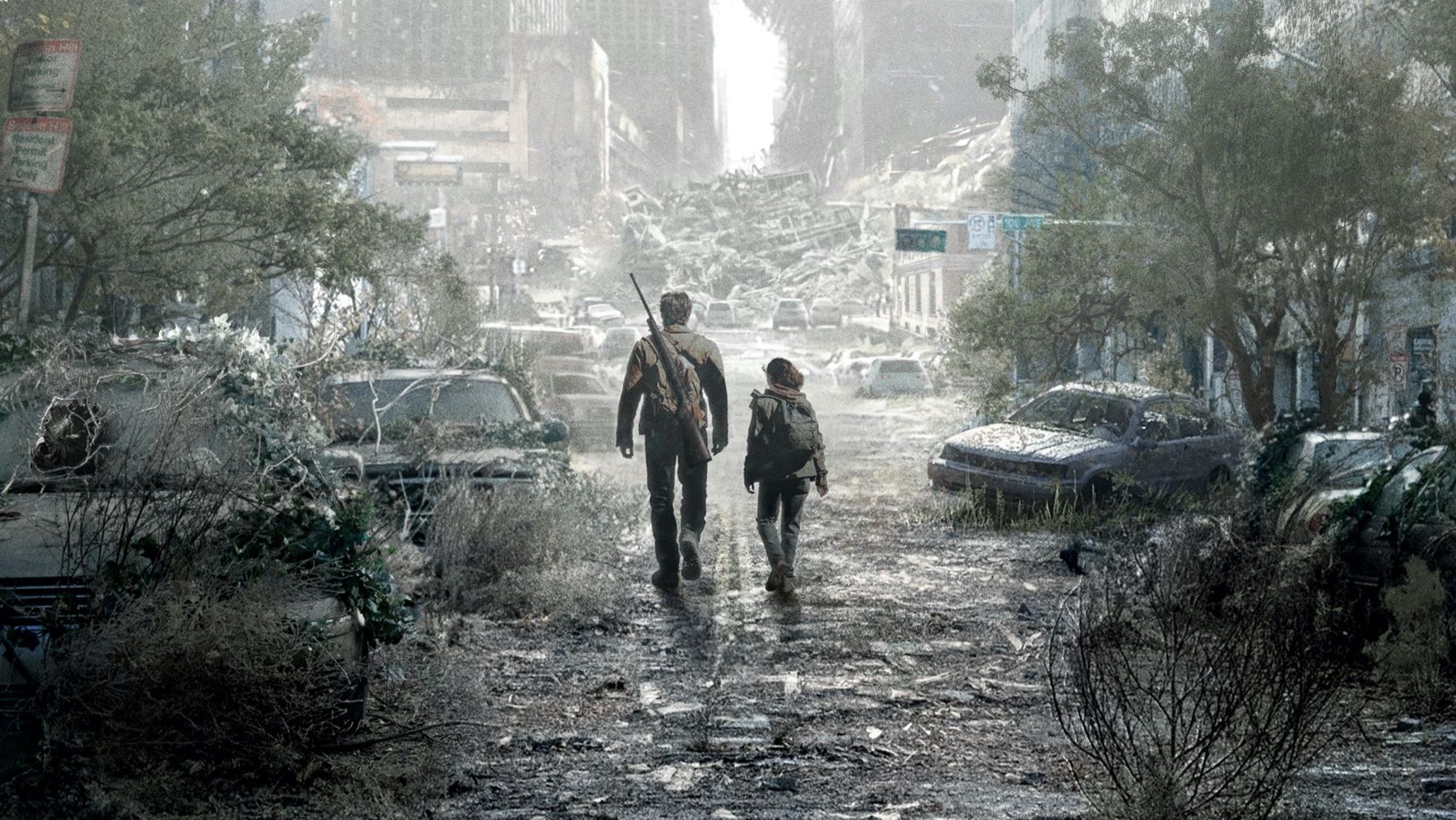
When fellow writer Harel Cohen proposed we watch the television adaptation of The Last of Us, I thought I could handle the sadness. Since I didn’t have the same emotional attachment to the franchise, which includes two video games and a DLC, I thought I could remain distant. Harel could identify the points of comparison between game one and the show, and I could enjoy the ride.
I was wrong.
This show has broken me. I’m hooked on the narrative of how love in an apocalypse can either make or destroy you. Harel warned me, in all fairness, that it was going to be emotional. I had expected sad moments but was prepared to harden my heart to watch the show with expectations.
The Last of Us surprised me. I didn’t know that a zombie show whose game inspiration has a frustrating sequel — according to the players — would have such an impact. Sure, Pedro Pascal knows how to break a person when he plays someone’s dad on a television show. I’m totally not arguing with that logic. Yet he’s not the one that provided the sadness.
Despite his character being a broken man who lost most of his family in one night, Pedro Pascal — one could argue — is the heart of the show. He helps those who cannot help themselves and protects the ones that he loves. It’s two one-episode characters that stole my heart and broke it.

Queer Love That Isn't a Tragedy
Bill and Frank really surprised me. While I have seen Nick Offerman play a gay man that is really cool in the show Brooklyn Nine-Nine, I didn’t expect him to appear here and contribute to this narrative, let alone be in a non-comedic role.
For reference, Bill is a significant character in the game, but Frank is only mentioned. In fact, Frank never appears on-screen because he is already dead, owing to a bad run-in with the zombies and not wanting to let the virus take him. Bill gives Joel some resources while bitter and hating the world. It’s a sad entry in an already bleak series and makes one ask why. Why is this the only queer rep we see?
We get a different approach in episode three. The couple meets when Frank falls into Bill’s mantraps and nearly gets shot. He eats his first meal in a while, despite Bill saying that he can’t house anyone after spending years turning his home into a fortress and a paradise. One piano melody later, and the two end up housing together. Bill comments Frank is terrible at playing the piano and singing, but regardless, it left him entranced. Frank can appreciate Bill’s cooking and wine collection; he was expecting a token meal and maybe a loaf of bread, not the chance to freshen up and sit down to a proper dinner. Bill is kinder than he appears. He just hasn’t had the opportunity to show it.
Bill also has emotional barriers to go with his physical ones. He has built this compound to deal with a government conspiracy. Besides zombies, human raiders have taken advantage of societal breakdowns to steal supplies and hurt innocent people when they can. When we meet some of them in later episodes, our sympathies for Bill increase. This world became cruel and hostile, and raiders rewarded mercy and bargains with opportunism.
What hurts is that Frank, with his big heart, wears down Bill’s traumatic coping mechanisms from the apocalypse. He offers resources to Tess and Joel many years ago, exchanging a gun for strawberry seeds so that he can offer plants to his partner. Bill, however, needs a lot of persuading to part with his guns, outraged by the offer… but then he sees the strawberries and smiles. They are a sign of hope. The world may be ending, but they still have strawberries. Fruits can grow amid illness and decay.
This would all be nice and fine if Frank and Bill were still alive as of the present day. Sadly, they aren’t.
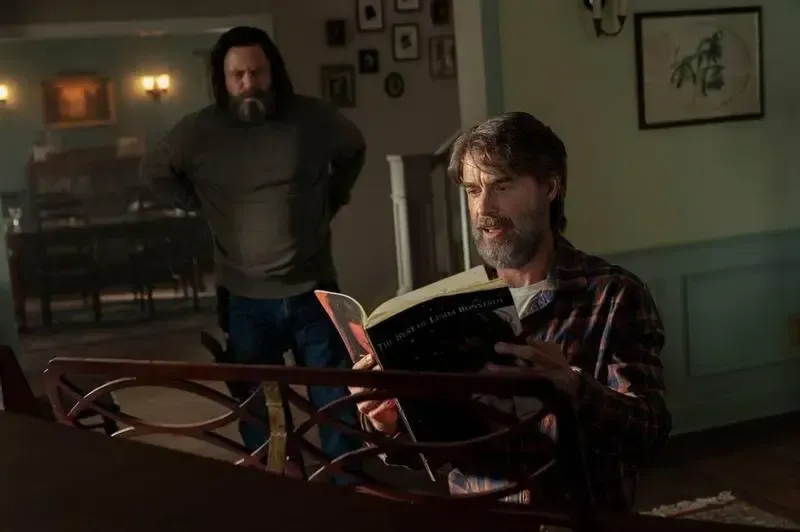
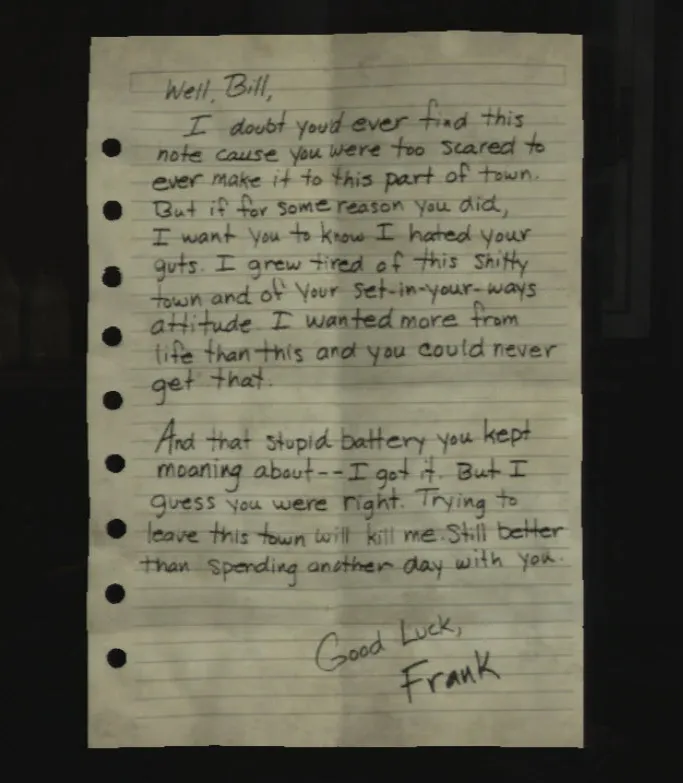
In the show, Frank and Bill experience a life well-lived. While in the game (right image), it's portrayed as shattered and bitter. Sources: HBO and The Last of Us Wiki.
When Joel and Ellie, the true protagonists of both the show and the gaming series, arrive at the compound, Joel realizes that the place is deserted. No one has tended to the flowers or repainted the walls. He finds a note and starts crying. Frank developed a terminal illness and requested to go out on his terms. Bill agreed, with wedding suits and a fancy dinner, but followed his lover into the darkness. They take some pills and pass on snuggling together. Bill leaves the windows in their bedroom open so that when their bodies decompose, they would not cause any stink. He also wills his weapons and supplies to Joel, the one other person he trusts, to protect Tess and anyone else under Joel’s care.
After mourning for a bit, Joel packs some supplies and takes the best car to transport Ellie. They leave behind the strawberries and the peeling paint. No one is going to live in that compound again.
I was not okay after seeing all of this. Despite my resolution to stay calm, I was tearing up and mourning this story. Queer love isn’t allowed to thrive on TV in such a way, on the same levels as films like Up. We never get to see a life like that together.
Does This Episode Subvert Bury Your Gays?
To be fair, the game didn't subvert the trope. It leaned into the dramatic death of gay people, implying that Frank died regretting his relationship with Bill to rub salt in the wound.
My righteous side wanted to argue that I don’t just want to see queer characters killed on a show for drama. Harel told me that the games were even worse with what happened. This convinced me to only see analyses from people who have been reviewing the show. Indeed, the Internet agreed that this wasn’t a tragic ending, but a full and well-lived life that we saw, characterized by little fights that healthy communication could resolve.
One thing that does suck is we find out that later, Joel’s brother Tommy has a successful compound that has housed families in winter. Tommy is happily married to his wife and plans to start a family. I kept saying Joel and Ellie should stay with Tommy and wait out the winter, which does not happen.
Why was Tommy given this happiness for an indeterminate amount of time, while Bill and Frank were only an episode? Or is the game reduced to a side character and a footnote? Sure, Tommy appears in the game sequel, but Bill and Frank have wonderful depth conveyed in only twenty minutes. I would have liked to see their journey continue.
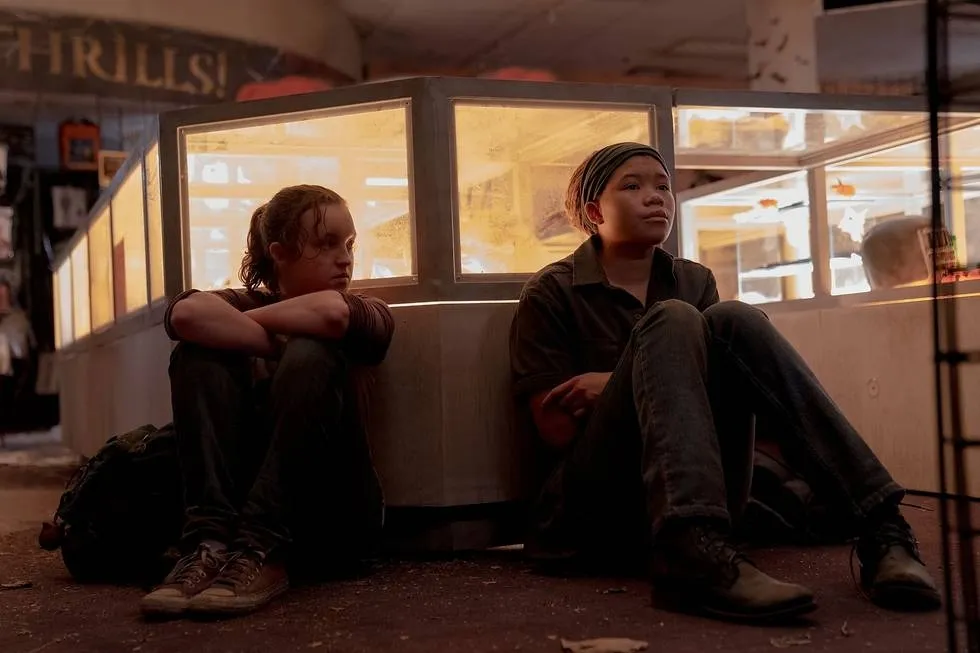
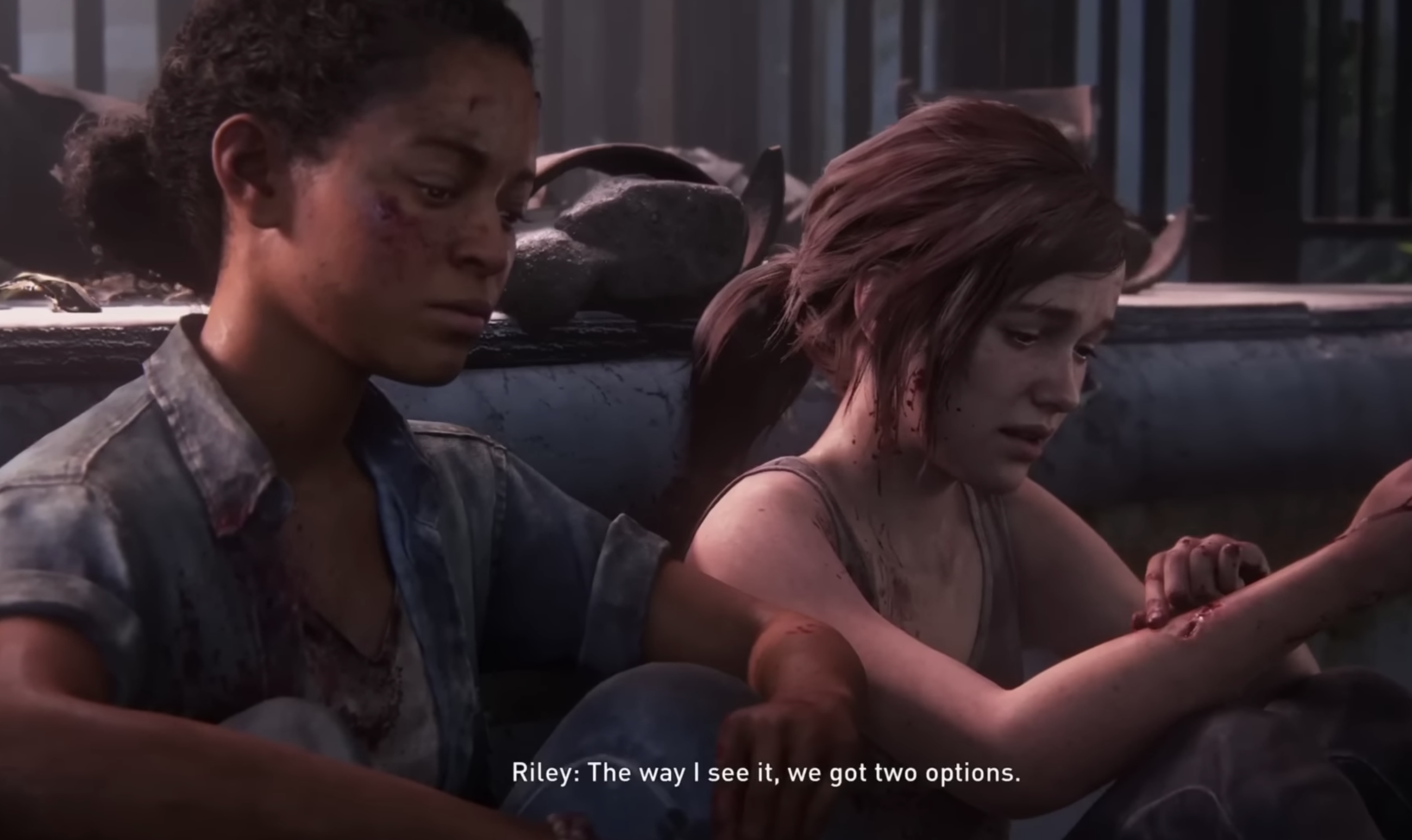
Left to right: Ellie and Riley in the show adaptation. Source: Warner Brothers; Ellie and Riley in The Last of Us: Left Behind. Source: YouTube.
Not helping is that the only other canonical gay love interest for Ellie (a character named Riley) also dies both in-game and in the show offscreen. We don’t see any living gay characters in a happy relationship, in contrast to characters such as Tommy who has made a life for himself. I do feel it is a problem because Bill and Frank joining Joel and Ellie would have made the story stronger in my mind, or even if they agreed to stay at the compound and hold down the fort until Frank’s terminal illness kills him.
With that said, the show’s writing for that episode depicted the best characterization I’ve seen in queer romance in a while. The closest I have seen is Barney and Logs in Dead End: Paranormal Park.
I absolutely recommend that if you haven’t seen The Last of Us, you should watch it soon. It ambushed me with feelings, and I dove right into this narration. Well done!